Space
Sign up for our newsletter
We summarize the week's scientific breakthroughs every Thursday.
-
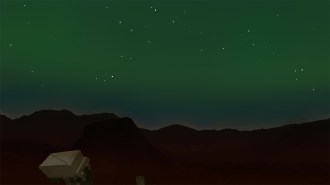 Space
SpacePerseverance takes the first picture of a visible Martian aurora
A faint yet visible Martian aurora is the first instance of the phenomenon spotted from another planet's surface.
By Nikk Ogasa -
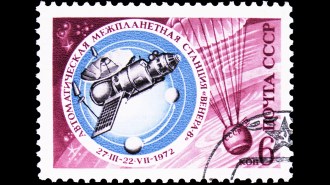 Space
SpaceA Soviet spacecraft has returned to Earth
Kosmos 482 launched for Venus in 1972 but never left Earth orbit. The spacecraft finally lost enough energy that it couldn't fight gravity anymore.
-
 Astronomy
AstronomyA gas cloud 5,500 times as massive as the sun lurks nearby
At 300 light-years away, the interstellar cloud is the closest of its kind ever found to Earth and the largest apparent single structure in the sky.
-
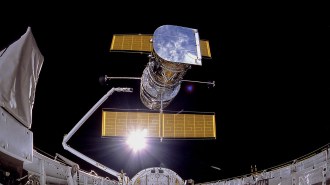 Space
SpaceSee how the Hubble Space Telescope is still revolutionizing astronomy
Hubble is still going strong 35 years after it was launched into space. Celebrate its anniversary with some out-of-this-world images.
-
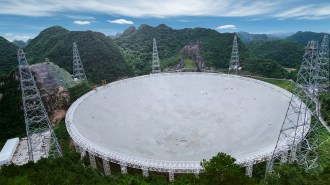 Astronomy
AstronomyA gas clump in the Milky Way’s neighborhood might be a ‘dark galaxy’
A blob of gas seen outside the Milky Way could be a type of starless, dark matter–dominated galaxy. Some scientists are skeptical.
-
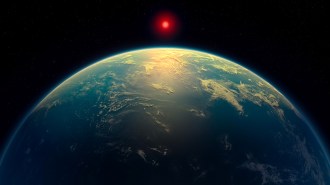 Astronomy
AstronomyA claimed hint of alien life whips up spirited debate
Astronomers have a lot of thoughts about the latest paper claiming we’ve found the strongest hints of alien life yet on the distant planet K2 18b.
-
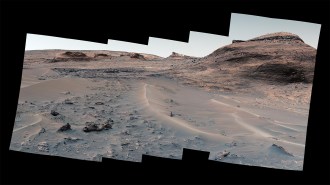 Space
SpaceA NASA rover finally found Mars’ missing carbon
The Curiosity rover identified hidden caches of the mineral siderite, which could help explain why Mars lost its habitable climate.
-
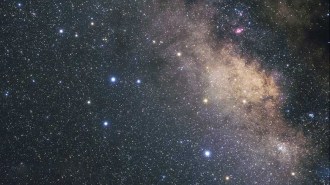 Astronomy
AstronomyYes, there really is a black hole on the loose in Sagittarius
Astronomers now agree: They’ve spotted the first isolated stellar-mass black hole ever seen.
By Ken Croswell -
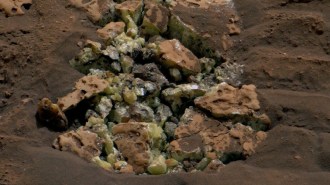 Planetary Science
Planetary ScienceCheck out some of the weird rocks that have turned up on Mars
Some of the unusual rocks carry stories about water on Mars. One has hints of long-gone microbes. All tell of a dynamic, complex planet.
-
 Space
SpaceFermenting miso in orbit reveals how space can affect a food’s taste
A miso test on the International Space Station shows fermenting food is not only possible in space, it adds nuttier notes to the Japanese condiment.
-
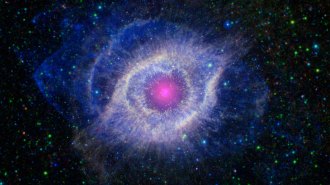 Astronomy
AstronomyA nebula’s X-ray glow may come from a destroyed giant planet
Decades of constant X-ray emission from the Helix Nebula’s white dwarf suggest debris from a Jupiter-sized planet steadily rains upon the star.
-
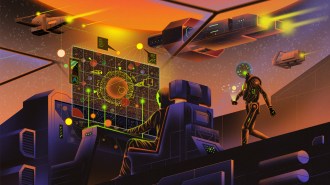 Space
Space‘Star Wars’ holds clues to making speedier spacecraft in the real world
Controlled fusion, solar sails or ion engines could someday help spaceships travel between star systems.